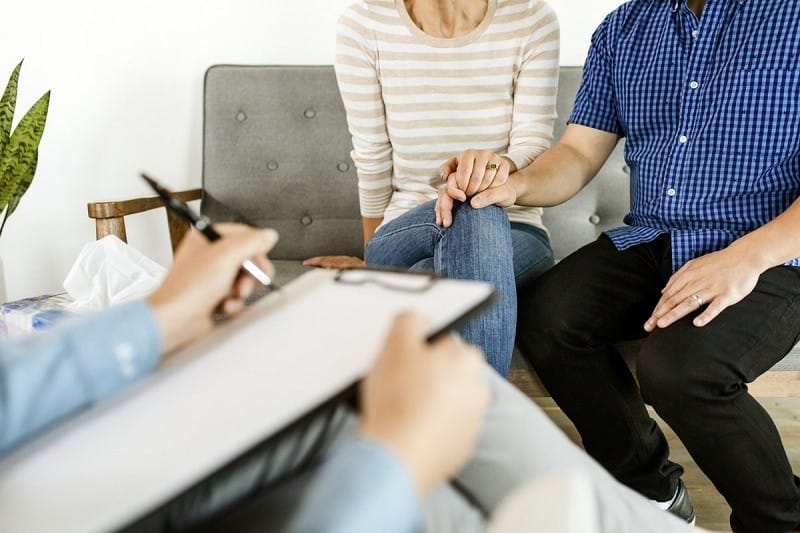Every relationship goes through its ups and downs, but when things seem to get tough, relationship counseling can offer the guidance needed to navigate the challenges. Whether it’s a romantic partnership, a friendship, or a family bond, sometimes a third-party perspective from a professional counselor can provide the tools and support necessary to heal and grow together. In this article, we will explore the role of relationship counseling, its benefits, and how it can transform relationships.
What Is Relationship Counseling?
Relationship counseling is a therapeutic process designed to help individuals and couples address issues within their relationships. It involves working with a trained counselor or therapist who guides clients through open communication, conflict resolution, and emotional understanding. The aim is to build healthier relationships by tackling specific issues, fostering deeper emotional connections, and teaching coping strategies for managing conflicts.
Unlike traditional therapy, which might focus on individual mental health, relationship counseling focuses on improving dynamics between two or more people. This could involve addressing a variety of challenges such as communication problems, infidelity, trust issues, or family conflicts.
Why Consider Relationship Counseling?
While every relationship faces challenges, recognizing when you need professional help is a critical first step toward resolution. Here are a few reasons why you might consider relationship counseling:
1. Improved Communication
One of the most common reasons couples or families seek relationship counseling is to improve communication. Poor communication can lead to misunderstandings, frustration, and emotional distance. A counselor can teach effective communication techniques, helping you express your feelings and listen to each other more openly and honestly.
2. Managing Conflict Effectively
Conflict is inevitable in any relationship, but how you handle it can make a significant difference. Relationship counseling offers strategies for managing disagreements in a healthy and constructive way, preventing escalation and helping you find common ground without harming the relationship.
3. Rebuilding Trust
Trust is the foundation of any healthy relationship, but when it’s broken, it can be difficult to rebuild. Whether it’s due to infidelity, broken promises, or other factors, relationship counseling can help partners work through the emotional pain, rebuild trust, and restore faith in one another.
4. Strengthening Emotional Connections
Over time, relationships can sometimes feel stagnant or disconnected. Relationship counseling can help you reconnect emotionally, improve intimacy, and strengthen your bond. Through therapy, you can learn how to express your needs, desires, and vulnerabilities in ways that bring you closer together.
Types of Relationship Counseling
There are several different approaches to relationship counseling, depending on the needs of the individuals or couple involved. Some common types include:
1. Couples Counseling
Couples counseling is specifically designed for romantic relationships. It focuses on improving communication, resolving conflicts, and rebuilding trust between partners. Couples therapy can address a variety of issues, including infidelity, financial problems, intimacy issues, and more.
2. Family Counseling
Family counseling is for families dealing with relational issues that affect the entire household. Whether it’s parents and children struggling to communicate, blended families adjusting to new dynamics, or sibling rivalry, family counseling helps to create a harmonious family environment by improving communication and understanding among all members.
3. Premarital Counseling
Premarital counseling helps couples prepare for marriage by addressing potential challenges before they become problems. It typically covers topics like finances, parenting styles, communication preferences, and future goals, ensuring that couples are on the same page and ready for a lifelong commitment.
4. Individual Relationship Counseling
Sometimes, an individual may want to work on their relationship issues independently before involving their partner. Individual relationship counseling focuses on personal growth, helping individuals address issues such as self-esteem, attachment styles, or past trauma that may be affecting their relationships.
Benefits of Relationship Counseling
The benefits of relationship counseling extend beyond simply resolving conflicts; therapy can create long-lasting, positive changes in your relationship. Here are some key benefits:
1. Better Conflict Resolution
One of the main reasons couples seek relationship counseling is to resolve conflicts in a healthier way. Through therapy, couples learn techniques to manage disagreements, express their feelings without blame, and work toward finding mutually satisfying solutions.
2. Enhanced Communication Skills
Relationship counseling improves communication by teaching couples how to listen effectively, validate each other’s emotions, and express themselves without criticism or defensiveness. These skills are essential for building a solid foundation and maintaining a healthy, long-term relationship.
3. Increased Emotional Intimacy
Therapy fosters emotional intimacy by encouraging open and honest conversations about feelings, fears, and desires. As both partners work together to understand each other’s emotional needs, the relationship deepens and becomes more fulfilling.
4. Personal Growth
In relationship counseling, individuals often learn valuable life skills that can improve not only their relationships but also their personal well-being. From gaining self-awareness to developing better coping strategies, therapy can help you grow as a person while strengthening your connections with others.
How to Start Relationship Counseling
Taking the first step toward relationship counseling is often the hardest part, but it is a crucial investment in your future together. Here’s how you can get started:
1. Acknowledge the Need for Help
Recognizing when you need help is the first step. Whether you’re facing ongoing issues or simply want to improve your relationship, acknowledging the need for professional support shows commitment to making positive changes.
2. Find a Qualified Counselor
Look for a licensed therapist who specializes in relationship counseling. Ask for recommendations from trusted friends or family, or search online for professionals in your area. Many therapists offer free consultations, so you can determine whether they are a good fit for you.
3. Commit to the Process
Relationship counseling requires commitment from both partners. Be prepared to put in the effort and engage in the process wholeheartedly. Remember, therapy is a space for growth and learning, and it often takes time to see significant changes.
Conclusion
Relationship counseling can be a transformative experience, offering the tools and insights necessary to overcome challenges and build stronger, more resilient relationships. Whether you’re facing communication problems, trust issues, or simply want to improve your bond, therapy can help you navigate the ups and downs of any relationship. By prioritizing open communication, emotional intimacy, and conflict resolution, relationship counseling can help you create a healthier, happier relationship that stands the test of time.

